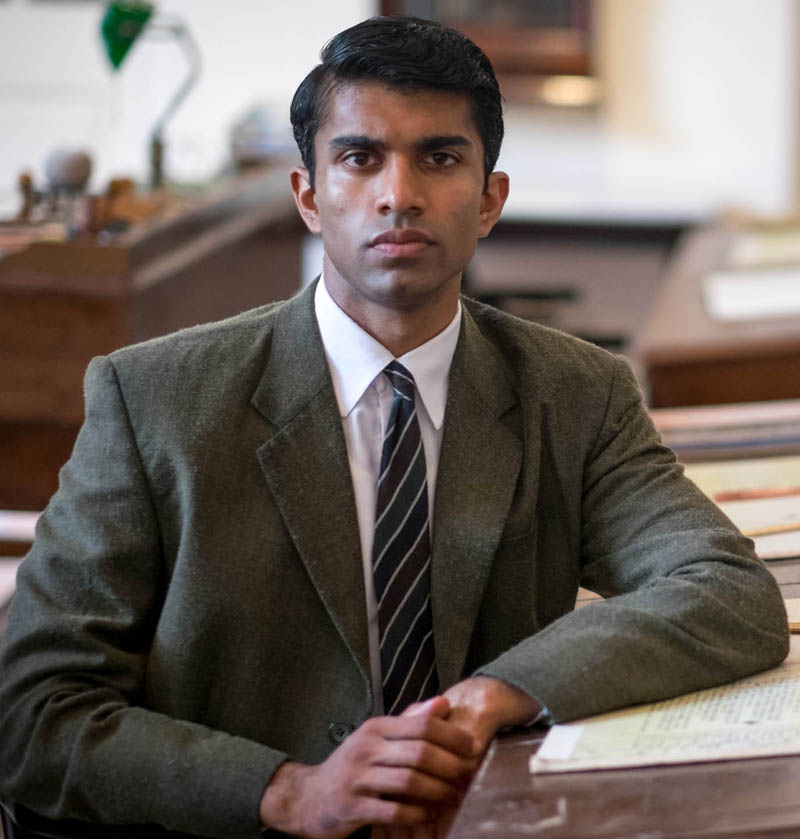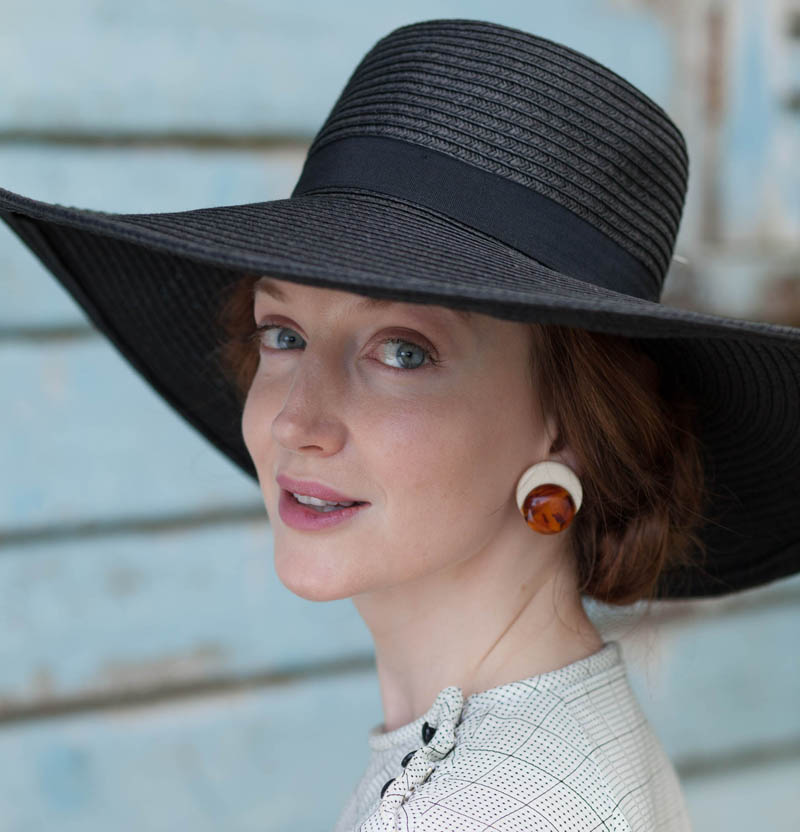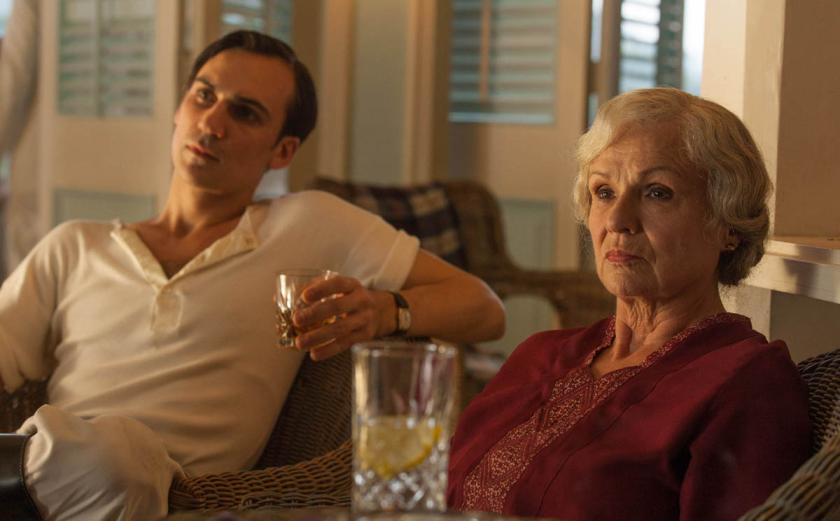In the tradition of A Passage to India, The Jewel in the Crown and Staying On, Indian Summers is ambitious, a serious soap attempting to show the dying days of the Raj through a host of interwoven personal and political attachments. Passions run high in the foothills of the Himalayas, cool in the Indian summer, but X-rated for human relationships. This jumbo-sized opener (the first of 10 episodes) had a tangled web of plotlines woven round a variety of class and caste, racial, religious and sexual tensions, amid a potentially explosive political situation. It's all set in the gorgeous landscape of Simla, the hill station that was the summer capital of the Raj.
It opened in March 1932, when just a few thousand British civil servants ruled a subcontinent. A poor barefoot half-caste boy dressed in rags trudged along the road, then fled from a gang of young Indian boys throwing stones. Half-castes, we learned later, were accepted nowhere. We switched to the steam train carrying beautifully dressed young Englishwomen to their summer retreat in the hills, away from the suffocating weather of the Indian plains. The young memsahibs languidly wielded fans, watching from the window endless processions of Indian labourers carrying the luggage of the ruling classes uphill to Simla: among all the suitcases there was a rocking-horse.
 Julie Walters, as Cynthia Coffin, the cynical, all-seeing manager of the Royal Simla Club – with a sign outside forbidding the entrance of Indians and dogs – was readying the premises for the opening dinner of the season, the theatre for the adulterous passions and steamy liaisons that provided endless gossip for the British. The club was a mess, wrecked by the marauding monkeys of the winter, but lo and behold that huge staff got it all cleaned up in time. Meanwhile Cynthia wept in the tack room as she hung up the photograph of her beloved dead Reggie, once a captain with the 8th Gurhka Rifles.
Julie Walters, as Cynthia Coffin, the cynical, all-seeing manager of the Royal Simla Club – with a sign outside forbidding the entrance of Indians and dogs – was readying the premises for the opening dinner of the season, the theatre for the adulterous passions and steamy liaisons that provided endless gossip for the British. The club was a mess, wrecked by the marauding monkeys of the winter, but lo and behold that huge staff got it all cleaned up in time. Meanwhile Cynthia wept in the tack room as she hung up the photograph of her beloved dead Reggie, once a captain with the 8th Gurhka Rifles.
The train steamed on before halting at the body of the ragamuffin half-caste, who had evidently been poisoned, but was rescued by Leena, a beautiful young Indian woman (Amber Rose Revah), and the bearded Scots missionary Dougie (Craig Parkinson, pictured above) and taken to the Camarthen Missionary School. Emerging from his coma, he told the concerned adults he had no name. After toying with calling him Lazarus, they settled for Adam. It turns out Dougie is married to a horribly discontented and snobbish beauty, Sarah (Fiona Glascott), and has a sublimated passion for the gorgeous and good Leena.
 Back in Simla town, we learned that the Dalal family depended for its income entirely on the son of the family, Aafrin Dalal (Nikesh Patel, pictured left), a clerk in the British Civil Service. He, a Parsi (really?) is in an unsuitable romance with the Hindu Sita. And he is profoundly concerned with his revolutionary younger sister, who has painted her palms red as a sign of her political fervour. Meanwhile, the dastardly British invented the possibility of a cholera epidemic to give the militia and the police a fine excuse to investigate households suspected of insurrection.
Back in Simla town, we learned that the Dalal family depended for its income entirely on the son of the family, Aafrin Dalal (Nikesh Patel, pictured left), a clerk in the British Civil Service. He, a Parsi (really?) is in an unsuitable romance with the Hindu Sita. And he is profoundly concerned with his revolutionary younger sister, who has painted her palms red as a sign of her political fervour. Meanwhile, the dastardly British invented the possibility of a cholera epidemic to give the militia and the police a fine excuse to investigate households suspected of insurrection.
And dissatisfaction was in the air. Outside the Vice-regal Lodge a pavilion with a portrait of Queen Victoria was defaced with red paint, reading in Hindustani "Long Live Revolution". Our conflicted protagonist, Ralph Whelan (Henry Lloyd-Hughes), private secretary to the so far invisible Viceroy, is in charge. He comes from a centuries long family devoted to the Raj, and was preparing to welcome his sister Alice (Jemima West), fleeing from an unhappy marriage in England with her small son Percy, and returning to India after having been sent to boarding school in England at the age of 8. Do keep up!
 Cynthia opened the now immaculate Royal Simla Club with her version of song, dance and rousing speech; she also locked Ralph, the ambitious civil servant, in a clubroom with the American heiress Madeleine (Olivia Grant, pictured right) so that he could form a heterosexual attachment to show he is "steady" and ready for further promotion. In a climactic scene, the whole British contingent sat down at the vast club dinner-table, national anthem playing, and toasted the King Emperor. Ralph was called away to receive an urgent message, but instead became the subject of a murder attempt. The faithful Dalal was shot instead, and Cynthia sanctioned the use of the Viceroy’s Rolls-Royce to take Dalal to hospital.
Cynthia opened the now immaculate Royal Simla Club with her version of song, dance and rousing speech; she also locked Ralph, the ambitious civil servant, in a clubroom with the American heiress Madeleine (Olivia Grant, pictured right) so that he could form a heterosexual attachment to show he is "steady" and ready for further promotion. In a climactic scene, the whole British contingent sat down at the vast club dinner-table, national anthem playing, and toasted the King Emperor. Ralph was called away to receive an urgent message, but instead became the subject of a murder attempt. The faithful Dalal was shot instead, and Cynthia sanctioned the use of the Viceroy’s Rolls-Royce to take Dalal to hospital.
The whole is a curious mix. Many of the characters are empathetic, caught in a system they did not invent, but they are also drawn with far too broad a brush. The British are almost invariably caricatures, hardly noticing the Indians whose lives they rule. The Indians are beautiful and intelligent, but also caught in their own complex of prejudices. The high quality of most of the acting makes it almost but not quite believable. Time will tell.















Add comment